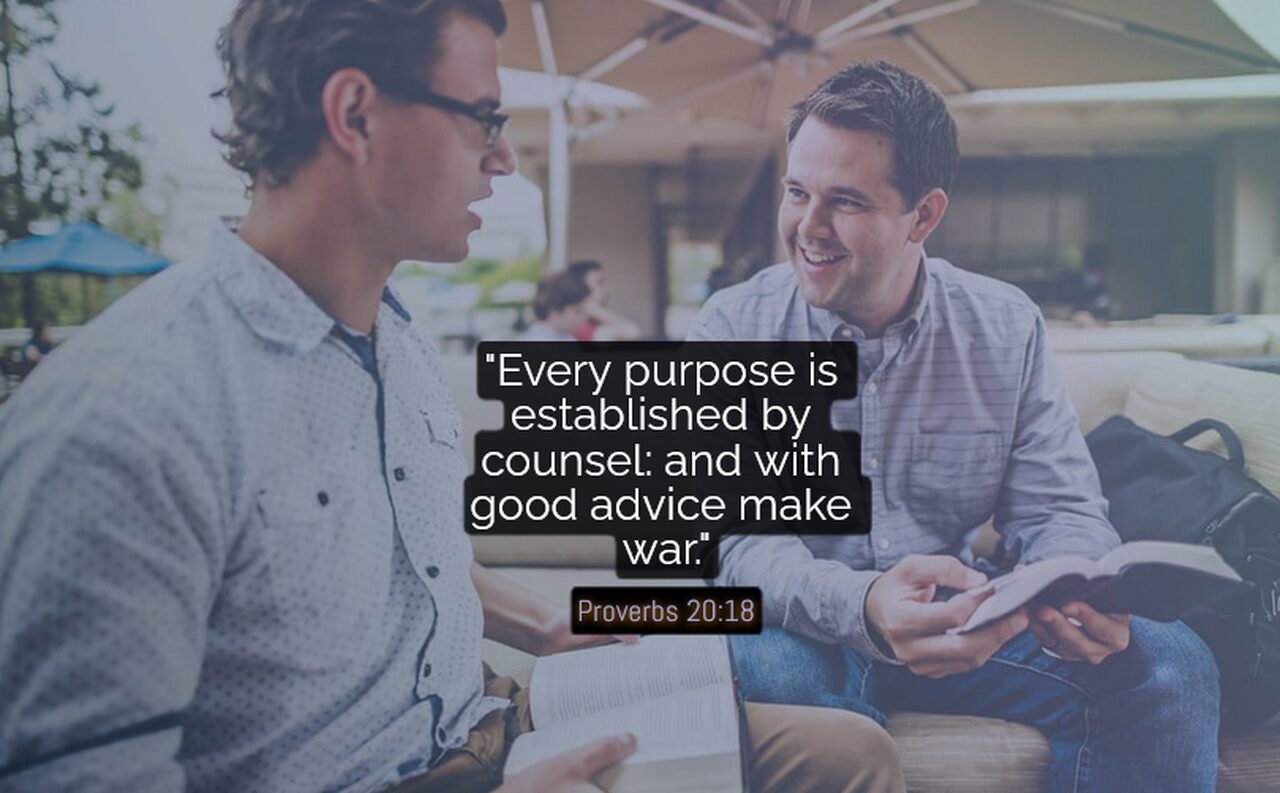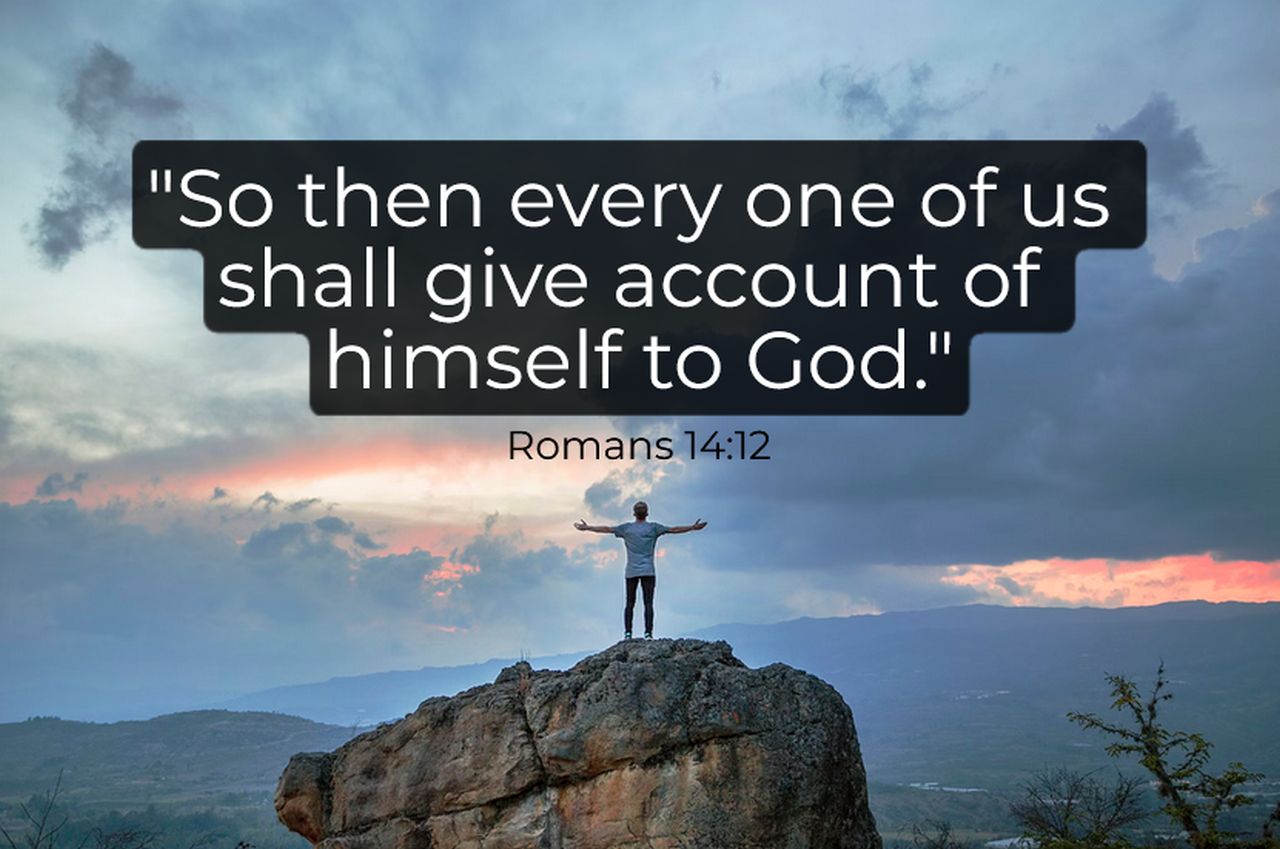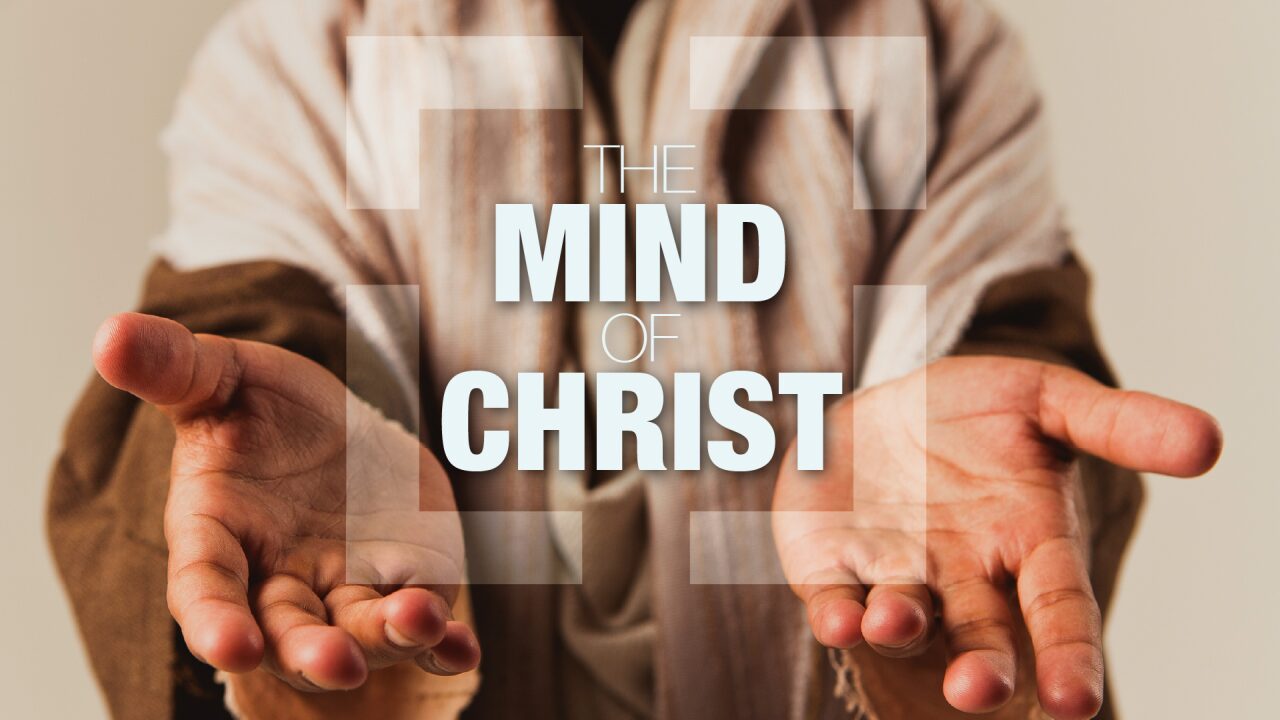By Cheryl MacGrath
In a number of the denominations I’ve been involved in, including at leadership level, a “doctrine of covering” was taught and accepted. And for many, many years, I never questioned this teaching. After all, everyone believed it; the leadership upheld it, so it must be right, right? It is only as the Holy Spirit has impressed me to study the Scriptures more deeply on this teaching that I’ve had to come to terms with the fact that He NEVER originated it! In His infinite grace, He chose to wait patiently for a time when the Spirit of Truth would become dearer to me than the traditions of men.
The teaching on “covering” goes like this. Everyone needs to be accountable to someone who is spiritually his or her superior. This someone may be your cell group leader, the head of a church department or your senior pastor etc. In turn, these leaders receive covering from someone further up the line, for instance a denominational leader or a “recognized” apostle. The necessity for this covering is based on the belief that believers need to be safeguarded from falling into error and/or sin. So, covering is provided by those who are more spiritual than we to protect us from such error. At the top of this pyramid of covering there is quite often a well-known and recognized “name” but the chances of meeting or having any kind of relationship with that person if you are at the bottom of the pyramid are fairly slim. Currently, there are several networks offering this kind of covering to those in some form of church leadership or ministry, more often than not for an annual fee. The annual fee usually provides for the running of the network, and conferences where you can fellowship with others under your particular brand of covering. You may also be denied entrance from one of these networks because you don’t have the appropriate credentials.
One of the strange things about this “covering” teaching is that rarely is anyone asked about their spiritual covering, until they step outside their particular church, denomination or network. However, the minute a believer shows signs of having something important to share with the wider Body of Christ, suddenly all and sundry are interested primarily in that one important question: “Who are you covered by?” It all sounds pretty reasonable except for one problem—it’s NOT FOUND in Scripture. In fact, the early church was taught to rely on the inner anointing to discern the spiritual source of potential ministers. (See 1 John 2:20; 1 John 4:1.)
So, where did this idea originate that believers need to be “covered” in order to serve God and minister within Christ’s Body? Are you, like many others, living your Christian life under the shadow of this fear that without “covering” you dare not minister, preach, pray or do a myriad of other things you’re called to do by the Spirit of God, because you will somehow be ministering without protection?
The purpose of this article is to shed some light on this issue based on scriptural truth. To begin with, though, we need to understand that this need to be covered by a perceived spiritual authority, and the scriptural instruction to submit ourselves to God’s delegated authorities, are NOT necessarily one and the same thing. Furthermore, New Testament authority as demonstrated by Jesus and the first apostles, is servanthood- authority, upholding, strengthening, reinforcing and overseeing the Body from BENEATH, not DOMINEERING, CONTROLLING and RULING from ABOVE. Therefore, it is vital in examining this issue that we begin from a correct understanding of Biblical submission and Biblical authority.
“Let This Mind Be In You”
“Let this mind be in you, which was also in Christ Jesus: 6 who, being in the form of God, thought it not robbery to be equal with God: 7 but made himself of no reputation, and took upon him the form of a servant, and was made in the likeness of men: 8 and being found in fashion as a man, he humbled himself, and became obedient unto death, even the death of the cross” (Philippians 2:5-8).
The current mindset we carry in much of the church concerning submission is quite unrelated to the submission taught and demonstrated by Jesus and the early apostles. There is a desperate need to return to the same mind that was in Christ Jesus. The Scripture tells us that though He was equal with the Father, Jesus CHOSE to submit Himself, He CHOSE to humble Himself, He CHOSE to obey. This is the key to Biblical submission, and the model laid down for us by both the Father and the Son.
Submission is firstly a choice; a choice that can only ever be made by the giver. Biblical submission can never be demanded or forced. That kind of relationship is subservience, not submission. Jesus chose to subject Himself to the Father, but the Father “so loved
the world that He GAVE His only begotten Son.” Sacrificial giving and sacrificial submission are married to each other. In the Spirit, you cannot have one without the other. If you try, you will invariably end up with control, dependence and abuse rather than humility, interdependence and grace.
The New Testament concept of submission or subjection, is one of a totally voluntary attitude of giving, of yielding one’s preference and deferring to another. In this way, Jesus as a child was subject to His parents, yet the Scriptures record that He did not even consult them when He was “about His Father’s business” (Luke 2:49, 51).
“It Shall Not Be So Among You”
“Obey them that have the rule over you, and submit yourselves: for they watch for your souls, as they that must give account, that they may do it with joy, and not with grief: for that is unprofitable for you” (Hebrews 13:17).
“But Jesus called them to him, and saith unto them, Ye know that they which are accounted to rule over the Gentiles exercise lordship over them; and their great ones exercise authority upon them. 43 But so shall it not be among you: but whosoever will be great among you, shall be your minister: 44 and whosoever of you will be the chiefest, shall be servant of all” (Mark 10:42-44).
There is no question that the scriptures instruct each one of us to submit to God’s delegated authority. It is the understanding and the application of that authority we often stumble over. The Bible records that Jesus taught the twelve this Kingdom authority as they walked along the road to Jerusalem. His face had been set toward the cross, and it is certain He was keenly aware of the short time He had left with them. Perhaps He was conversing with His Father about what were the most important lessons He could impart to them during the time that was left. We know that He heard them disputing over who among them was the best “leadership material.” Perhaps Peter, having not long before witnessed Jesus’ transfiguration, thought that gave him special status. Perhaps James and John felt they were more likely candidates for rulership than impetuous Peter. Shortly before, they had asked Jesus to give them special places of honor in His Kingdom. Whatever had started their dispute, Jesus certainly knew how to end it! “And whosoever will be chief among you, let him be your servant” (Matt. 20:27).
The Lord was speaking to a group of people who had grown up under the rule of the Roman empire. The Romans exercised their authority through forced subjection and harsh cruelty. In fact, the literal translation of the words Jesus used in reference to Roman rule mean “to be under the power of” and “to be subdued.” Despite having witnessed Jesus using a very different kind of authority and power, the disciples had not yet understood exactly what He would require of them. The Romans were, in the political sense, their masters. Yet here was Jesus stating that to exercise the authority He was going to invest in them they would need to become slaves to one another, and not masters. One might safely assume these weren’t words any of them particularly wanted to hear that day!
Kingdom authority has nothing to do with titles, positions, educational qualifications or reputation. Kingdom authority is granted by the Lord according to the measure with which He can trust us to wield it with humility. The greatest authority in the Kingdom is reserved for His bond slaves.
What About Accountability?
In today’s church system we have confused the word “covering” with the need for accountability. Consequently, many are holding themselves accountable to people with title and position, regardless of whether or not they are developing an ongoing transparent relationship with that person. In the Kingdom, it is not possible to be truly accountable to those with whom we are not actively growing in relationship. How can I be trusted to call you to account righteously if I don’t love you in Christ? How can you love me with Christ-like love and not call me to account?
Paul was able to correct the Corinthians because he had true relationship with them. He had travailed over them, nurtured them, wept for them and rejoiced with them. Therefore, he was able to reprove them for their edification and not for their destruction. (See 2 Corinthians 13:10.)
When we turn to the Scriptures for guidance on this issue of accountability, a startling fact confronts us. The New Testament mentions accountability ONLY in terms of the believer towards God. The Scripture teaches that we will give accountability TO GOD ALONE in the following areas:
–stewardship (Luke 16:2)
–ourselves (Romans 14:12)
–fruit (Philippians 4:17)
–what we do in the flesh (1 Peter 4:5)
–leaders shall give account for the souls they watch over (Hebrews 13:17)
What then, DO the scriptures teach about how believers, as members of the corporate Body of Christ, are to relate to one another?
“Yea, all of you be subject one to another, and be clothed with humility: for God resisteth the proud, and giveth grace to the humble” (1 Peter 5:5).
In Galatians Chapter Two we read of a journey Paul took to Jerusalem. He states that he went up “by revelation,” that is, at the instigation of the Holy Spirit, in order to confirm that the gospel he had been preaching was approved by the eldership of the Jerusalem church. He goes on to state that: “But of these who seemed to be somewhat, (whatsoever they were, it maketh no matter to me…)” had nothing to add to his teachings. He further adds that when James, Cephas (Peter) and John perceived the grace God had shown him, he was given the “right hands of fellowship.”
At the instigation of the Holy Spirit, Paul had subjected himself to the Jerusalem eldership, including Peter, for the purpose of accountability. One may safely assume that Peter, having spent around three years day and night with Jesus, and highly regarded by the early believers, held very great authority in the church. Paul, however did not ask Peter to cover him. Instead, he did not hesitate in calling Peter to account when Peter was later swayed to go back on his word by the fear of men (Galatians 2:11-14). Bear in mind this is the same Peter who stated: “We ought to obey God rather than men” (Acts 5:29)’
These men understood the nature of relationship through the Holy Spirit; ALL of you be submissive to one another, ALL of you be clothed with humility. Each of us is accountable to one another, whatever our function in the Body, whether apostles, teachers, deacons or helpers. This is the church Christ is building.
To say that we are demonstrating accountability to a person or group of people we may briefly rub shoulders with at a meeting once or twice a week, or perhaps once or twice a year, is ludicrous. True accountability is about how we express Christ in us— our lifestyle, our character and our integrity in families, jobs and church community. This cannot be measured outside godly relationships, and without a humble willingness to be in subjection one to another. Each one of us needs to seek out and submit ourselves to those in the Body the Lord has placed close to us to provide that accountability, regardless of their position, title or function. Each one of us needs to be willing, in humility and service, to provide that same accountability base for others in the Body. This applies to leadership equally as it does to the newest, most inexperienced member of the Christian community.
Sadly, what we see today in so much of the church, is a frenzied jockeying for position under the supposedly protective umbrella of some ministry name or reputation, in order to prove ourselves “covered.” “WHO COVERS YOU?” has become one of the most frequently asked questions among Christians, and too often it is the deciding factor in assessing a ministry’s integrity or otherwise. Consequently, an unsatisfactory answer to that question in some church circles can label you “outside the camp” and almost certainly not to be trusted. Christians are judging each other’s worth and relationship with God on this issue of covering, and using it to justify self-righteousness and spiritual elitism.
In Part Two of this study we will talk about what is at the root of this distorted doctrine, and the clear choices that lie before us in order to be free from it.
PART TWO
“And the Lord will create upon every dwelling place of mount Zion, and upon her assemblies, a cloud and smoke by day, and the shining of a flaming fire by night: for upon all the glory shall be a defence.” Isaiah 4:5
“He shall cover thee with his feathers, and under his wings shalt thou trust: his truth shall be thy shield and buckler.” Psalm 91:4
It’s About His Name
“And it came to pass, that on one of those days, as he taught the people in the temple, and preached the gospel, the chief priests and the scribes came upon him with the elders, 2 and spake unto him, saying, Tell us, by what authority doest thou these things? or who is he that gave thee this authority?” Luke 20:1-2
As we see from these portions of Scripture, the question “who covers you?” is not new. The chief priests, scribes and elders were not simply asking Jesus where His supernatural power came from. More than that, they wanted a NAME. “Who is he? Come on, tell us Jesus, who is the scribe, who is the rabbi, who is the prophet who covers you? And no more of that over-spiritualized talk about your Father. We want the name of the person who said you could do these things!”
The apostle Paul confronted a similar problem in the Corinthian church.
“For it hath been declared unto me of you, my brethren, by them which are of the house of Chloe, that there are contentions among you. 12 Now this I say, that every one of you saith, I am of Paul; and I of Apollos; and I of Cephas; and I of Christ. 13 Is Christ divided? was Paul crucified for you? or were ye baptized in the name of Paul?” 1 Corinthians 1:11-13
The Lord is jealous over us concerning His Name. We were bought and paid for by His blood, and His Name is the only Name by which we are to identify ourselves. When believers choose to find their identity in another name other than His, the Spirit is grieved, and His Name is dis-honored.
It’s About the Flesh
“But be not ye called Rabbi: for one is your Master, even Christ; and all ye are brethren. 9 And call no man your father upon the earth: for one is your Father, which is in heaven. 10 Neither be ye called masters: for one is your Master, even Christ. 11 But he that is greatest among you shall be your servant.” Matthew 23:8-11
The Corinthians were apparently separating into factions according to whom they considered was the most authoritative teacher. They were following after men, and for that reason Paul took issue with them. Further in his letter he goes on to challenge them by describing this kind of mindset as carnal and fleshly rather than spiritual:
“For ye are yet carnal: for whereas there is among you envying, and strife, and divisions, are ye not carnal, and walk as men? 4 For while one saith, I am of Paul; and another, I am of Apollos; are ye not carnal?” 1 Cor. 3:3
Finally, he instructs them:
“Therefore let no man glory in men. For all things are yours; 22 whether Paul, or Apollos, or Cephas, or the world, or life, or death, or things present, or things to come; all are yours; 23 and ye are Christ’s; and Christ is God’s.” 1 Cor. 3:21-23
The Corinthians had become so obsessed with the attributes of certain teachers they were idolizing them. They wanted to regard particular individuals as their “master,” “father,” or “teacher,” but Paul wanted them to understand that in doing so they were falling short of their full inheritance in Christ. He wanted them to see that all of these teachers belonged to them as servant-ministers, and not the other way around.
It’s About A Substitute King
At the heart of the Corinthians’ idolatry was the age-old desire for a ruler, a king. The flesh would much rather fear man than fear God. The flesh would much rather submit to the control of law than submit to the freedom of the Spirit. This principle is seen
throughout Scripture.
Afraid they would die, the Israelites begged Moses to be God’s messenger to them, rather than hear His voice for themselves.
“And all the people saw the thunderings, and the lightnings, and the noise of the trumpet, and the mountain smoking: and when the people saw it, they removed, and stood afar off. 19 And they said unto Moses, Speak thou with us, and we will hear: but let not God speak with us, lest we die.” – Exodus 20:18-19
God desired for the people to hear Him for themselves, but they refused. Effectively, the Israelites were elevating Moses as their mediator. The entire nation had been called as a kingdom of priests, but their preference was to be ruled by on man. (See Exodus 19:1-9.)
Many years later, when the prophet Samuel officiated as Israel’s judge, Israel’s carnal desire for a man-king surfaced again:
“Then all the elders of Israel gathered themselves together, and came to Samuel unto Ramah, 5 and said unto him, Behold, thou art old, and thy sons walk not in thy ways: now make us a king to judge us like all the nations.
“6 But the thing displeased Samuel, when they said, Give us a king to judge us. And Samuel prayed unto the Lord. 7 And the Lord said unto Samuel, Hearken unto the voice of the people in all that they say unto thee: for they have not rejected thee, but they have rejected me, that I should not reign over them. 8 According to all the works which they have done since the day that I brought them up out of Egypt even unto this day, wherewith they have forsaken me, and served other gods, so do they also unto thee. 9 Now therefore hearken unto their voice: howbeit yet protest solemnly unto them, and shew them the manner of the king that shall reign over them.
“10And Samuel told all the words of the Lord unto the people that asked of him a king. 11 And he said, This will be the manner of the king that shall reign over you: He will take your sons, and appoint them for himself, for his chariots, and to be his horsemen; and some shall run before his chariots. 12 And he will appoint him captains over thousands, and captains over fifties; and will set them to ear his ground, and to reap his harvest, and to make his instruments of war, and instruments of his chariots. 13 And he will take your daughters to be confectionaries, and to be cooks, and to be bakers. 14 And he will take your fields, and your vineyards, and your oliveyards, even the best of them, and give them to his servants. 15 And he will take the tenth of your seed, and of your vineyards, and give to his officers, and to his servants. 16 And he will take your menservants, and your maidservants, and your goodliest young men, and your asses, and put them to his work. 17 He will take the tenth of your sheep: and ye shall be his servants. 18 And ye shall cry out in that day because of your king which ye shall have chosen you; and the Lord will not hear you in that day.
“19 Nevertheless the people refused to obey the voice of Samuel; and they said, Nay; but we will have a king over us; 20 that we also may be like all the nations; and that our king may judge us, and go out before us, and fight our battles.” (1 Samuel 8:4-20).
The key to Israel’s demand for a human king, rather than the direct reign of Yahweh over them, was “that we also may be like all the nations, and that our king may judge us, and go out before us, and fight our battles.” They wanted a name and a face that could “go out before” them. They wanted someone visible they could show the other nations. They wanted a symbol, a token leader who could take responsibility for how they would live and conduct their lives. They wanted someone with a reputation they could identify with. They wanted to be like the world. They wanted human “covering.”
You see, friends, there is a place for governmental leadership, there is a place for accountability within the Body. There is a place for submission to legitimate God-delegated authority. All these are valid and in order, but only insofar as they are not permitted to substitute for the direct rule of God in our lives. And only insofar as they are not sought out as a counterfeit for the sovereignty and rulership of the Holy Spirit within each believer.
It’s Of A Different Spirit
“Thou art the anointed cherub that covereth; and I have set thee so: thou wast upon the holy mountain of God; thou hast walked up and down in the midst of the stones of fire.” – Ezekiel 28:14
Many Bible scholars agree that God’s rebuke to the “king of Tyre” recorded in Ezekiel 28:1-19 is prophetically addressed to Satan. In it, we find that originally this fallen angel was called the “anointed cherub who covers.” Some scholars believe he was especially anointed to cover the Mercy Seat in the Holy of Holies. In the Presence of God, he walked back and forth in the midst of the fiery stones. The passage states that when iniquity was found in him he was cast out of God’s holy mountain, and removed from the midst of the fiery stones.
This Hebrew word “to cover” means “to hedge, fence about, shut in, block, overshadow, screen, stop the approach, shut off, cover” (H. “cakak” Strongs 05526). It is a word than can be used either in relation to defense or oppression.
Beloved, Satan still desires to walk back and forth in the midst of God’s living, fiery stones. He still desires to be the covering cherub on God’s holy mountain, but the covering he offers is oppressive, designed purely to hinder believers and rob them of the freedom and full potential that is ours through Christ.
The doctrine of covering is an old lie with a new name. It is fundamental to the maintenance of a false hierarchical religious system controlling many Christians in this day. Without the power of this erroneous mindset, it is even doubtful that some sections of the “church” could survive.
“Endeavouring to keep the unity of the Spirit in the bond of peace. 4 There is one body, and one Spirit, even as ye are called in one hope of your calling; 5 one Lord, one faith, one baptism, 6 one God and Father of all, who is ABOVE ALL, and THROUGH ALL, and IN YOU ALL.” – Ephesians 4:3-6
The scriptures plainly state that it is God alone who is OVER all. Only God can
cover His people, and only the Holy Spirit can unite them. The most disturbing aspect about the covering teaching is that it subtly encourages believers to look to men and women rather than develop their own deep relationship with God through the Holy
Spirit. It upholds a man-made church built on hierarchy rather than a spiritual temple built through the unity of the Spirit. It promotes a class system of rulership by title, human appointment and personality, and DEVALUES the PRIESTHOOD of every believer. It negates leadership by the Holy Spirit and discourages believers from hearing the direction of the Spirit for themselves. It is a DOCTRINE OF DEMONS being used to deceive and bind countless believers.
Now, about that freedom we were talking about at the beginning of this article! Don’t, repeat DON’T, use your newfound liberty as a license for rebellion against authority. If you have been trapped in this covering doctrine be wise in how you appropriate your freedom. There are many, many humble and faithful men and women overseeing and serving the Body of Christ with humility and devotion, and it may well be that whoever has been “covering” you is one of them. If you are blessed enough to be aligned with a
servant-leader who demonstrates true biblical authority, honor them, support them, and submit to them. But don’t expect them to cover you—that’s not theirs to give.
False doctrines are mindsets and beliefs that can only be cast down by the Spirit and the Word together. And ultimately, our walk in the Spirit is not the responsibility of leadership; it is our own responsibility. It is time for each one of us to choose—do we want the rulership of kings, or do we want the rulership of THE King?
Finally, let me leave you with these thoughts:
1. Who covered Philip when He went down to Samaria and started a revival? (The apostles heard about it and sent Peter and John down to check it out!) (Acts 8:4-8)
2. Who covered Philip when the angel of the Lord directed him to the Gaza desert? (There’s no record of the Ethiopian eunuch asking him for his “covering” credentials!) (Acts 8:26-40)
3. Who covered Ananias when he was sent to pray for Saul? (He went to pray for a known enemy of the church and didn’t even get permission!) (Acts 9:10-18)
4. Who covered Apollos when he taught boldly in the synagogue, even though he had not yet received the full gospel? (Acts 18:24-25)
5. And who covered Aquilla and Priscilla when they took Apollos under their wing to instruct him further? (Acts 18:26)
6. Who covered Agabus when he travelled down from Judea to deliver a prophetic word to Paul? (Acts 21:10)
The answer is the same in each instance: The Holy Spirit covered, protected, led, and enabled. He is the only covering we need. The real question is this: is He the only covering we want?
More on “covering” witchcraft here.
Covering Witchcraft Busted and Exposed!
Support | STORE | Podcasts | Peace with God | Hell’s Menu | Where Do We Go When We Die (audio) | Voices of Conviction Who Warn of Hell’s Horror



Abiding
Safety in Wise Counsel [podcast]

“Every purpose is established by counsel: and with good advice make war.” Proverbs 20:18
“The steps of a good man are ordered by the Lord: and he delighteth in his way.” Psalms 37:23
“So teach us to number our days, that we may apply our hearts unto wisdom.” Psalms 90:12
“Safety” in wise counsel from God’s wisdom, Word, and including at times with the help of His beloved saints.
“Where no counsel is, the people fall: but in the multitude of counsellors there is safety.” Proverbs 11:14
“The horse is prepared against the day of battle: but safety is of the LORD.” Proverbs 21:31
“For by wise counsel thou shalt make thy war: and in multitude of counsellors there is safety.” Proverbs 24:6
Caprice means a sudden and unaccountable change of mood or behavior.
“Who is a wise man and endued with knowledge among you? let him shew out of a good conversation his works with meekness of wisdom. 14 But if ye have bitter envying and strife in your hearts, glory not, and lie not against the truth. 15 This wisdom descendeth not from above, but is earthly, sensual, devilish. 16 For where envying and strife is, there is confusion and every evil work. 17 But the wisdom that is from above is first pure, then peaceable, gentle, and easy to be intreated, full of mercy and good fruits, without partiality, and without hypocrisy. 18 And the fruit of righteousness is sown in peace of them that make peace.” James 3:13-18
Support | STORE | Podcasts | Jail/Prison Ministry | Mexico Mission here | All Ministry Updates | 100’s of Christ-centered Podcasts | Bible Books Narrated | Bible Study Helps | The Book of James Narrated [podcast] | The Book of Revelation Narrated [podcast] | Colossians Overview [podcast]


Articles
“Let Brotherly Love Continue” [podcast]

“Let Brotherly Love Continue.” Hebrews 13:1
“And walk in love, as Christ also hath loved us, and hath given himself for us an offering and a sacrifice to God for a sweetsmelling savour.” Ephesians 5:2
1 John 4
God Is Love
“7 Beloved, let us love one another: for love is of God; and every one that loveth is born of God, and knoweth God.
8 He that loveth not knoweth not God; for God is love.
9 In this was manifested the love of God toward us, because that God sent his only begotten Son into the world, that we might live through him.
10 Herein is love, not that we loved God, but that he loved us, and sent his Son to be the propitiation for our sins.
11 Beloved, if God so loved us, we ought also to love one another.
12 No man hath seen God at any time. If we love one another, God dwelleth in us, and his love is perfected in us.
13 Hereby know we that we dwell in him, and he in us, because he hath given us of his Spirit.
14 And we have seen and do testify that the Father sent the Son to be the Saviour of the world.
15 Whosoever shall confess that Jesus is the Son of God, God dwelleth in him, and he in God.
16 And we have known and believed the love that God hath to us. God is love; and he that dwelleth in love dwelleth in God, and God in him.
17 Herein is our love made perfect, that we may have boldness in the day of judgment: because as he is, so are we in this world.
18 There is no fear in love; but perfect love casteth out fear: because fear hath torment. He that feareth is not made perfect in love.
19 We love him, because he first loved us.
20 If a man say, I love God, and hateth his brother, he is a liar: for he that loveth not his brother whom he hath seen, how can he love God whom he hath not seen?
21 And this commandment have we from him, That he who loveth God love his brother also.”
1 Corinthians 13
“Though I speak with the tongues of men and of angels, and have not charity, I am become as sounding brass, or a tinkling cymbal. 2 And though I have the gift of prophecy, and understand all mysteries, and all knowledge; and though I have all faith, so that I could remove mountains, and have not charity, I am nothing. 3 And though I bestow all my goods to feed the poor, and though I give my body to be burned, and have not charity, it profiteth me nothing. 4 Charity suffereth long, and is kind; charity envieth not; charity vaunteth not itself, is not puffed up, 5 Doth not behave itself unseemly, seeketh not her own, is not easily provoked, thinketh no evil; 6 Rejoiceth not in iniquity, but rejoiceth in the truth; 7 Beareth all things, believeth all things, hopeth all things, endureth all things. 8 Charity never faileth: but whether there be prophecies, they shall fail; whether there be tongues, they shall cease; whether there be knowledge, it shall vanish away.”
Support | STORE | Podcasts | Jail/Prison Ministry | Mexico Mission here | All Ministry Updates | Because You Care Page | The Greatest of these is Charity | Be Ready in the Morning [podcast] | The Sure Mercies of David [podcast] | That Repentance and Remission of Sins should be Preached [podcast] | At His Feet | Prepared to be Used of God | Walking with Jesus on His Stated Terms – the Cross | Fasting and Prayer | The Old Man Must be Put Down [podcast] | The 5 Sins That Keep God’s People Out of Their Promised Land [podcast] | What Did Paul Mean by “I Keep Under My Body”? [podcast] | “Jesus the Author and Finisher of our Faith” [podcast] | A Living Sacrifice unto God [podcast] | Departing from Hell Beneath | Prayer


Articles
5 Aspects of the Mind of Christ [podcast]

5 Components of the Mind of Christ from Philippians 2
- Jesus Christ made Himself of no reputation.
- He took upon Him the form of a servant.
- He was made in the likeness of men.
- He humbled Himself.
- He became obedient unto death, even the death of the cross.
Philippians 2:2-10
“Fulfil ye my joy, that ye be likeminded, having the same love, being of one accord, of one mind.
3 Let nothing be done through strife or vainglory; but in lowliness of mind let each esteem other better than themselves.
4 Look not every man on his own things, but every man also on the things of others.
5 Let this mind be in you, which was also in Christ Jesus:
6 Who, being in the form of God, thought it not robbery to be equal with God:
7 But made himself of no reputation, and took upon him the form of a servant, and was made in the likeness of men:
8 And being found in fashion as a man, he humbled himself, and became obedient unto death, even the death of the cross.
9 Wherefore God also hath highly exalted him, and given him a name which is above every name:
10 That at the name of Jesus every knee should bow, of things in heaven, and things in earth, and things under the earth;
11 And that every tongue should confess that Jesus Christ is Lord, to the glory of God the Father.”
At Gethsemane the death before the cross, before His death on the cross occurred.
“Father, if thou be willing, remove this cup from me: nevertheless not my will, but thine, be done.” Luke 22:42
“He became obedient unto death, even the death of the cross.” Philippians 2:8
Living in the mind, the disposition of Christ means you are truly following Him.
As Christ’s disciple, your devotion, your love is first to Him, then to your neighbor, not self (Matthew 22:37-39). You are commanded by the Savior to set self aside and to lift others above yourself—to prefer, to put God and others first. Those who do so, experience true freedom, liberty.
Being one with Christ, who gave all to save you, means your life is over—you now live to serve the LORD and others, not self (Galatians 2:20; Colossians 3:3).
Have you poured prayerfully over Philippians 2:3-5 today? If you will begin every day this week pouring prayerfully over this passage, asking the LORD to internalize it in your heart, God will begin to deeply instill the very “mind of Christ” into your innermost disposition.
Part of the dying…. IS GOD calling us to Himself, to forsake this world, including the attempt to save an unrepentant nation long in rebellion against Him – America?
Prayer: LORD, I want to walk in the disposition You walked in on earth. I will esteem You and others above myself. In Jesus’ name, amen.
Let’s Grow Together! Sign up here to begin receiving the Moments with Our Master email devotional that is sure to help you grow in His grace and in the knowledge of our LORD and Savior Jesus Christ (2 Pet. 1:2; 3:18). It’s sent out for the edification of the body of Christ. Sign Up HERE.
Support | STORE | Podcasts | Jail/Prison Ministry | Mexico Mission here | All Ministry Updates | More on Assurance here | Because You Care Page | The Greatest of these is Charity | Be Ready in the Morning [podcast] | The Sure Mercies of David [podcast] | That Repentance and Remission of Sins should be Preached [podcast] | At His Feet | Knowing God | The Cross Life | 100’s of Christ-centered Scripture-rich Podcasts | Christology = the Study of Christ



 America12 months ago
America12 months agoThe Drugging of America: The Pharmakeia Sorcery Deception [podcast]

 Articles2 years ago
Articles2 years agoChildren being Rescued in Tunnels: Happening Now – UPDATE!

 Articles8 years ago
Articles8 years agoSelf-Examination in Preparation for the Lord’s Return

 Apostasy2 years ago
Apostasy2 years agoSHOCKING List of False Prophets Most Believe are True












































